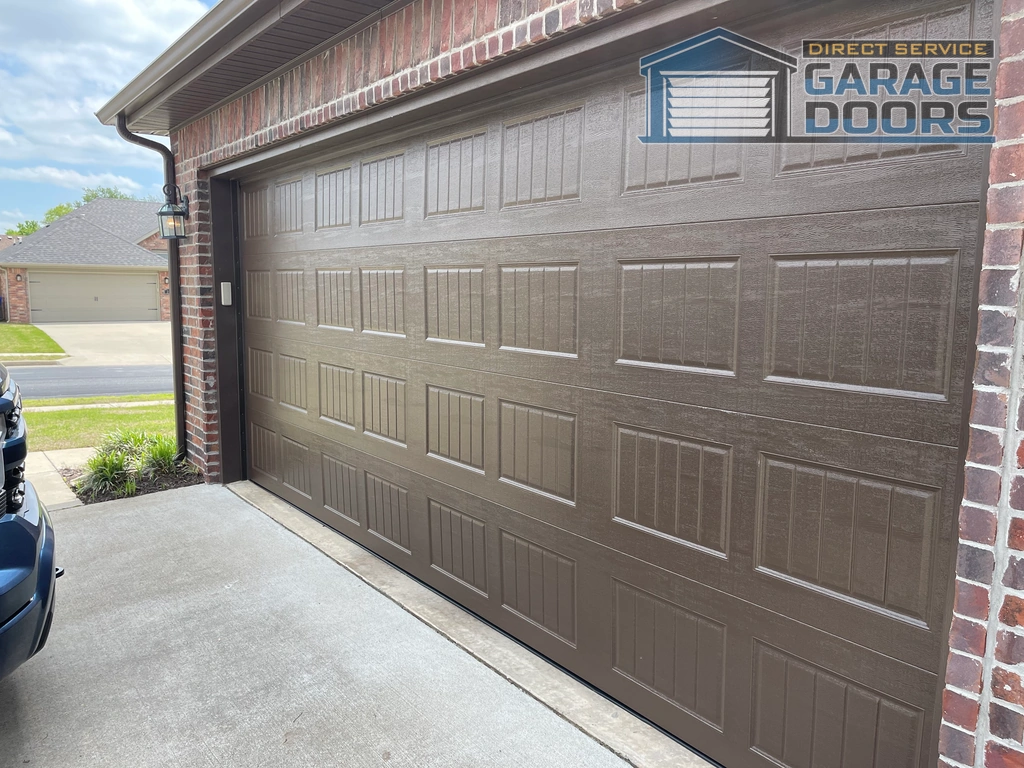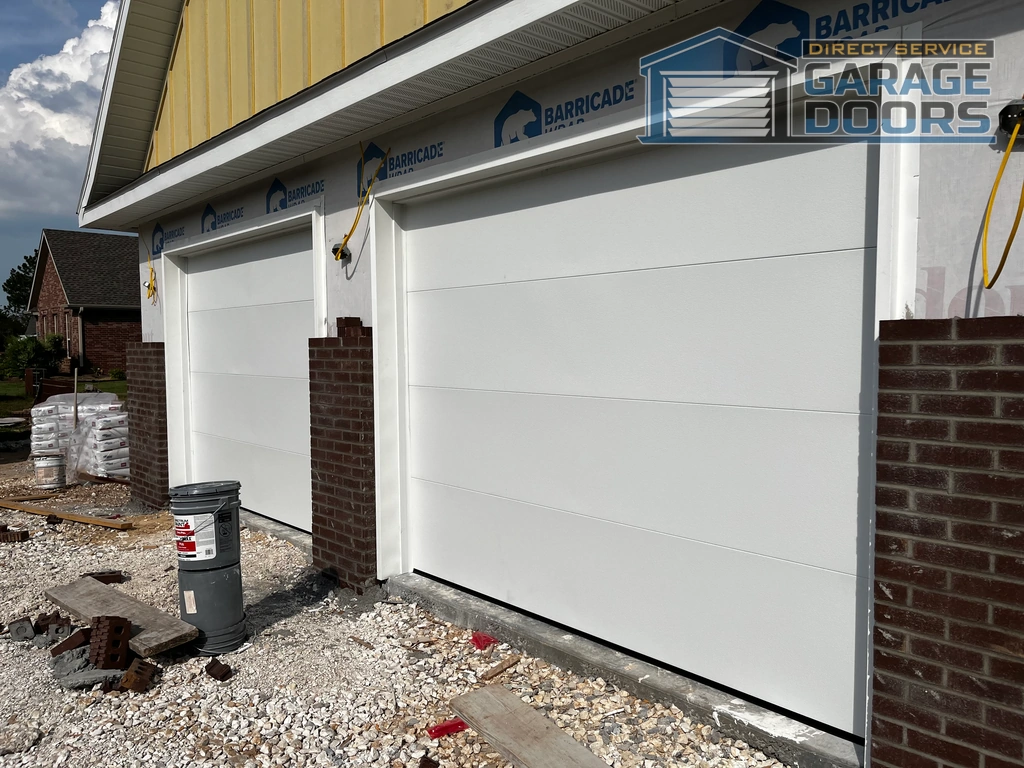
Mold in the garage can be a persistent issue that catches many homeowners off guard. As this stubborn fungus thrives in dark, moist spaces, taking proactive measures to control humidity levels is essential.
Investing in quality ventilation systems and moisture barriers can be effective in preventing mold growth.
Adequate airflow helps decrease humidity, while moisture barriers add an extra layer of protection against dampness, a key factor in mold formation
Click here to learn more about: directserviceoverhead.com
Understanding Garage Moisture Control
Moisture management in your garage is a critical consideration to preserve the condition of your space and safeguard your possessions. The presence of excess moisture can result in various issues such as mold growth, structural deterioration, and unpleasant odors.
Identifying the root causes of moisture accumulation, such as leaks, insufficient ventilation, and high humidity levels, is crucial in implementing effective solutions.
Incorporating strategies like utilizing mold-resistant materials, installing humidity sensors, and sealing concrete floors with waterproofing sealants can significantly enhance moisture control.
Ensuring proper air circulation, promptly addressing leaks, and conducting regular mold removal are essential steps in maintaining a healthy and functional garage environment. Understanding the dynamics of garage moisture control is paramount in prolonging the lifespan of your garage and protecting your valuables from potential harm

Choosing the Right Moisture Barriers
Excessive humidity in your garage can lead to a variety of problems, including mold growth and structural damage. To mitigate these issues, you need to implement effective measures such as insulation upgrades, solar-powered vents, natural inhibitors, drying strategies, moisture-absorbing products, and weather stripping.
When considering the best approach for moisture control in your garage, it’s essential to weigh factors like garage size, climate, and budget constraints.
Proper ventilation plays a crucial role in maintaining a dry environment, and selecting the right moisture barrier is vital in keeping mold at bay.
By following installation instructions and regular maintenance routines, you can ensure a mold-free and moisture-resistant garage space.
| Effective Measures for Moisture Control | Importance |
|---|---|
| Insulation Upgrades | Helps prevent mold growth and structural damage |
| Solar-Powered Vents | Provides proper ventilation to maintain a dry environment |
| Natural Inhibitors | Aids in keeping mold at bay |
| Moisture-Absorbing Products | Assists in maintaining a moisture-resistant garage space |
Ventilation Systems for a Mold-Free Garage
A well-ventilated garage is essential for maintaining a healthy atmosphere and preventing the growth of harmful molds and spore filtration. Mold can thrive in environments that are damp and lacking proper airflow, leading to potential health hazards if left unaddressed.
Various ventilation systems, including natural options like eco-friendly removers, mechanical solutions such as door seals, and a combination of both, can be utilized to combat fungal growth effectively.
Factors like the size of the garage, climate conditions, and budget considerations should be taken into account when choosing the right ventilation system.
Regular maintenance like climate-controlled storage and using UV light strategies are crucial in ensuring that the garage remains mold-free and safe for storage. By implementing proper ventilation techniques, spore filtration, eco-friendly removers, door seals, climate-controlled storage, UV light strategies, and fungal growth deterrents, you can create a healthy and mold-free environment in your garage for peace of mind.
Dehumidifying Solutions to Keep Mold at Bay
Maintaining a healthy living environment requires vigilance against the insidious presence of mold. Excess moisture in the air can create a breeding ground for this unwelcome intruder, leading to health hazards and property damage.
Dehumidification strategies are essential in combating mold growth, especially in places like the garage where mold tends to thrive.
To keep mold at bay, it is crucial to maintain humidity levels below 60% in these areas.
Implementing breathable containers, silica gel packets, and organization tips can help prevent moisture buildup and inhibit mold growth. Consider incorporating foundation waterproofing and antifungal treatments to fortify your defense against mold. By taking proactive measures and investing in air purifiers, homeowners can improve their indoor air quality and reduce the risk of respiratory issues.
| Effective Strategies | Benefits |
|---|---|
| Breathable containers, silica gel packets, and organization tips | Prevent moisture buildup and inhibit mold growth |
| Foundation waterproofing and antifungal treatments | Fortify defense against mold |
| Air purifiers | Improve indoor air quality and reduce respiratory issues |
The Importance of Antimold Paint
When it comes to maintaining a healthy and mold-free home environment, one effective solution lies in the application of specialized paint. Mold growth is not only unsightly but can also pose serious health risks and structural damage.
Incorporating desiccant dehumidifiers in your living space can significantly reduce the moisture levels that mold thrives on.
By utilizing detection kits, you can identify potential mold growth areas early on and take preventive measures.
Copper strips can be installed to prevent mold from spreading on surfaces, complementing your cleaning protocols. To enhance the effectiveness of antimold paint, consider vapor barrier installation to seal out moisture intrusion. Regular use of moisture meters can help you monitor moisture levels and proactively prevent mold growth.
Incorporating Mold-Resistant Materials
Incorporating mold-resistant drywall materials during your garage construction project is crucial for preventing the growth of harmful molds and maintaining a healthy indoor environment. When selecting the proper materials, such as caulking and roof repairs, you can significantly decrease the likelihood of mold contamination.
Opting for mold-resistant paint and finishes enhances the level of protection against mold development.
Effective drainage systems and regular maintenance are also essential in preventing moisture buildup, a common trigger for mold growth in enclosed spaces.
To further safeguard against mold, consider utilizing nonorganic storage solutions and HEPA vacuums for thorough cleaning. By implementing these strategies, you can ensure a mold-free garage space for many years to come
Key Points for Preventing Mold Growth in Garages
- Proper materials like caulking and roof repairs can reduce the likelihood of mold contamination
- Using mold-resistant paint and finishes adds an extra layer of protection against mold development
- Effective drainage systems and regular maintenance are crucial in preventing moisture buildup, a common trigger for mold growth
- Utilizing nonorganic storage solutions and HEPA vacuums for cleaning can further safeguard against mold in the garage
How Do Humidity Sensors Help?
Humidity sensors are essential tools for promoting healthy indoor environments. These devices monitor moisture levels, helping to mitigate the risks of mold and mildewcide growth.
Effective control of condensation is crucial in safeguarding both your well-being and property.
By implementing measures such as weatherproof windows, professional assessment, and antimicrobial mats, humidity sensors can significantly enhance the quality of your indoor air.
In conjunction with ozone generators and mildewcide primers, these sensors provide comprehensive protection against moisture-related issues
Sealing the Deal with Concrete Sealants
Protecting your garage floors coatings from damage and creating a clean, safe environment is essential. Factors to consider when selecting a sealant for your garage include durability, resistance to stains, moisture, and cracks.
Proper application techniques, such as thorough cleaning and preparation of the surface, are crucial for maximum effectiveness.
Regular maintenance of sealed floors is key to long-term protection.
Addressing common concerns and following best practices can help extend the lifespan of your garage. For additional insights on sealing your garage, consider utilizing DIY testing kits for concrete sealants.
Insulating your garage boosts efficiency and comfort
Fixing Garage Leaks Easily With Simple Steps
